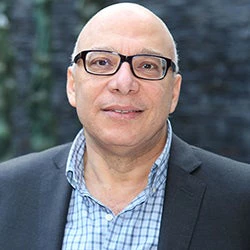 وستركز الكويت على احتواء ذوي الخاصة الاحتياجات في المدارس الحكومية والخاصة من خلال تشريعات جديدة.
وستركز الكويت على احتواء ذوي الخاصة الاحتياجات في المدارس الحكومية والخاصة من خلال تشريعات جديدة.
On December 9th, 2020, my colleagues and I at the World Bank held a webinar with Gulf Cooperation Council (GCC) leaders on accelerating human capital (HC) formation and broadening regional collaboration in the time of COVID-19. The GCC countries, coping with the dual shocks of the pandemic and low oil prices, are standing at the crossroad of economic and social transformation. The future of the region depends on how well they can continue to foster human capital (HC) development for new generations.
Most GCC countries have made progress in the Human Capital Index (HCI) in the last decade. However, the region’s performance still lags behind, compared to countries with the same income level. As we shared in our presentation, a child born today in the GCC will attain only between 56% and 67% of his/her full health and learning potential and therefore potential productivity by age 18. To help improve this index, the GCC generally needs to focus on these pillars:
- Prioritize public investment in early childhood development (ECD) and expand enrollment in early childhood education.
- Focus learning on skills rather than credentials.
- Promote female labor force participation and reduce skills mismatch.
- Reduce risk factors of noncommunicable diseases (NCDs), especially among youth.
- Develop all-of-government, whole-of-society actions that motivate behavioral changes and increase value for money in these investments.
Some highlights from the webinar are discussed below.
The UAE has been the front-runner in HC investment and formation in the region. One of the webinar participants, H.E. Hanan Mansoor Ahli, the Acting Director General of the UAE Federal Competitiveness and Statistics Authority, shared UAE’s investment and strategies. In 2020, the UAE government allocated the largest proportion of its public budget to human welfare and social development sectors at 42.3%. This includes 17% of the budget for health and 7.3% for education.
Ms. Ahli also discussed the UAE’s Healthcare Innovation Strategy for 2019-2021 with a new focus on preventive medicine and healthy lifestyles. Some of the programs are focused on, combatting child and adolescent obesity through a national Student Growth Record, establishing electronic patient profiles through the Warid System, improving patient safety and use of drugs using a smart application "UAE RADR," and supporting the nursing profession using mobile game "Sanad & Rahma." The UAE has also added additional health regulatory measures like a 100% excise tax on electronic smoking devices and equipment, and a 50% excise tax on sugar sweetened beverages.
The UAE Education Strategy 2021 aims to build inclusive, equitable and quality education for all. To raise literacy level for Arabic speakers all over the world, the authority launched the Madrasa E-learning Platform in 2018. Madrasa provides more than 5,000 free-of-charge educational videos in Arabic, focusing on physics, chemistry, biology, mathematics and general science. Madrasa has reached over 1.5 million students in 20 countries, ranging from kindergarten to grade 12.
To mitigate the adverse impact of COVID-19 on education, the UAE government is working on providing effective distance learning for all, especially for girls, as proudly highlighted by Ms. Ahli. The Digital School Initiative provides accredited online education to students worldwide, and its trial phase starts with 20,000 students and is expected to reach one million students by 2026.
Kuwait has experienced some stagnation in the HCI in the past decade, but it has the financial resources and a young innovative population that is full of potential. H.E. Dr. Khaled Mahdi, the Secretary General of Kuwait General Secretariat of the Supreme Council for Planning and Development, pointed out that World Bank’s index has marked a turning point for Kuwait’s HC strategy. Prior to HCI, the Kuwait Authorities focused on expenditure measures rather than outcomes. But now the HCI provides policymakers with a new perspective to identify the real problems and shift policy focus to enhance performance in outcomes.
To reduce performance gaps, the Kuwait National Plan aims to have a more holistic approach. Major ongoing policy measures include progressing in Healthy City Initiatives, reducing the prevalence of NCDs and related mortality, merging ECD into the Ministry of Education, re-introducing competence-based curriculum reforms and developing a National Job Strategy, with support from the World Bank, that emphasizes youth empowerment, digital transformation, nationalization and job creation in the private sector. The country will also focus on inclusion of people with special needs in public and private schools through new legislations.
As for the Kingdom of Saudi Arabia, it has made healthcare reform a key corner stone of the Saudi 2030 Vision. One major reform objective is to curb the high prevalence of NCDs and risk factors. Dr. Ada Al-Qunaibet, the Director of Public Health Research and Health Statistics at the Saudi Center for Disease Prevention and Control, shared Saudi Arabia’s strategy to incorporate global knowledge into local adaptation. They plan on reducing smoking and promoting healthy diet. Other newly introduced national interventions include taxation of tobacco products and sugary drinks, regulations to promote healthier reformulation of food products, and healthier food options at schools and government workplaces. In the long term, this healthcare reform will promote public health and improve the quality of life for all Saudi citizens and residents.
As the Arabic saying goes: "Be like a falcon, renewed, not satisfied except with the peaks." The region may face challenges, but it will rise again to new heights as countries work together to foster human capital.
RELATED
Fostering Human Capital in the GCC (Book)
Fostering Human Capital in the GCC (Webinar):



Join the Conversation